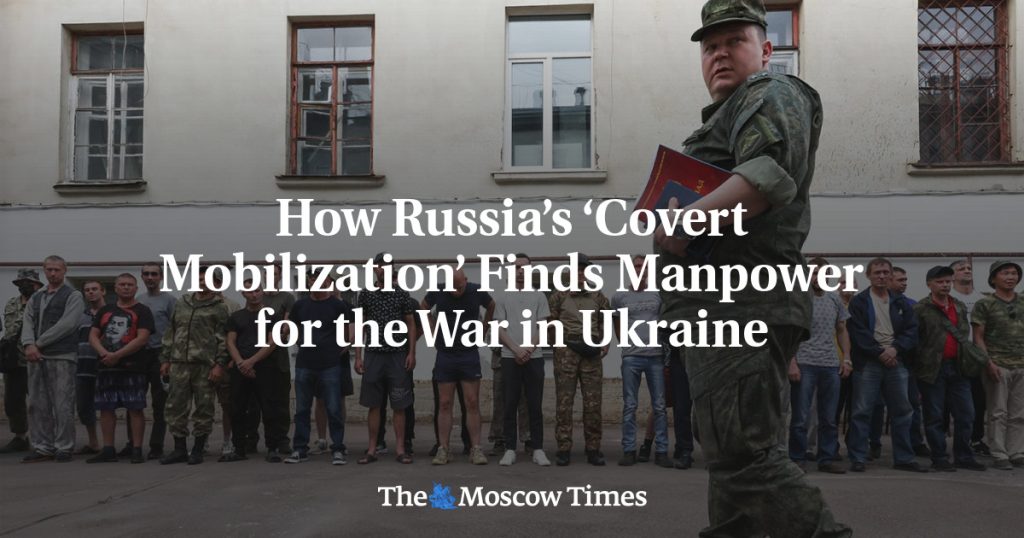Russia continues to use a variety of coercion tactics to bolster its military manpower in Ukraine, a strategy that has been effective in ensuring a continuous supply of fresh recruits to the frontlines. The Russian military has been increasing its efforts to capture more Ukrainian territory as Western support has been awaited, leading to rumors of a new mobilization wave in Russia. While a formal mobilization announcement is unlikely, the mobilization process has never truly ended, with recruitment efforts ongoing even after the stated quota was met in the fall of 2022.
In the first few months of the “partial” mobilization, the Defense Ministry focused on recruiting convicts and enticing former migrant workers who recently acquired Russian citizenship to sign military contracts. Currently, the ministry is targeting men undergoing compulsory military training, despite Russian law prohibiting their deployment to combat zones. These conscripts are often attracted by high salaries and social benefits, with some facing physical violence and intimidation. This recruitment strategy has led to instances of fatal injuries and deception.
Russian military volunteers are promised significant monthly salaries, well above the national average, and other benefits for enlisting. This financial incentive is appealing to many men, especially those from economically disadvantaged regions. While some individuals are willing to join the military for financial gain, others return home from the frontlines without receiving the promised monetary rewards. Additionally, concerns have been raised about the partial payment of promised salaries to military volunteers and mobilized men from the Russian Far East.
Men who are reluctant to enlist due to fears of dying on the frontlines are often deceived with promises of maintaining their civilian professions while working for the Defense Ministry. Various individuals from different backgrounds have been lured into military service under false pretenses. In regional areas, officials have resorted to threatening individuals with fabricated charges to meet recruitment quotas. Propaganda plays a significant role in portraying military service as a “real man’s job,” influencing individuals to join the army impulsively to escape personal problems or fulfill a perceived societal expectation.
Despite the war in Ukraine fading into the background for many Russians, regional officials in disadvantaged areas continue to manipulate individuals into signing military contracts. Men often make impulsive decisions to enlist, fueled by exposure to propaganda or a desire to escape personal issues. Stories of individuals signing contracts on a whim, only to regret their decision later, are not uncommon. The ongoing recruitment efforts in Russia highlight the various tactics employed by the government to maintain a steady supply of military manpower, with concerns raised about the recruitment process and the treatment of individuals enlisted in the armed forces.


